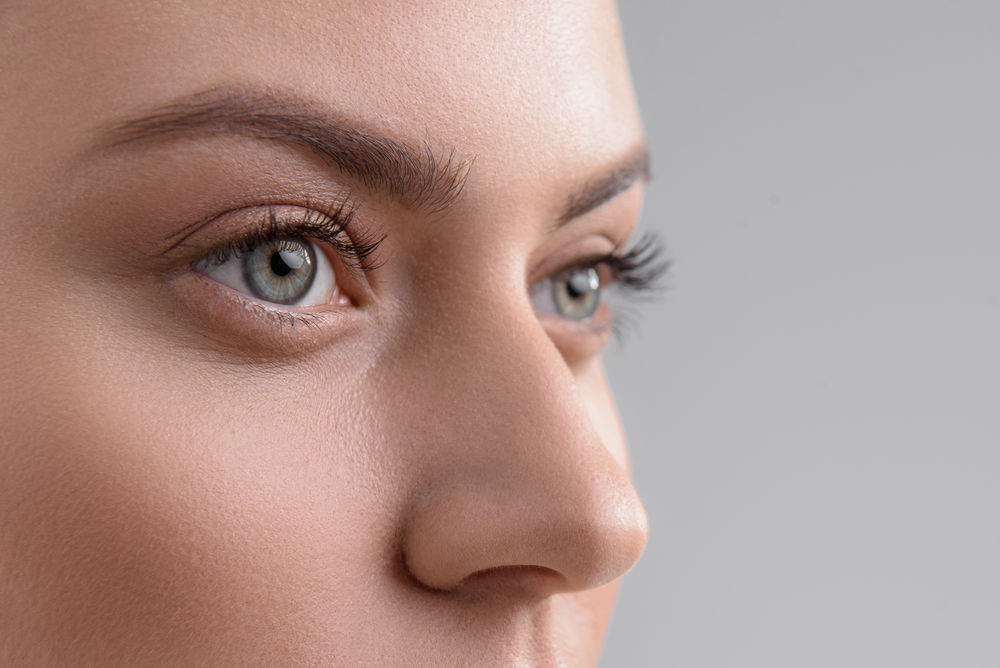Table of Contents (click to expand)
Our brain ignores ‘useless’ things, and this tendency is what keeps us sane and alive. Scientists call this phenomenon unconscious selective attention. The brain ignores certain sensory stimuli in order to pay attention to things that are deemed to matter more. Your nose gets ignored so that you can perceive your surroundings better. However, you can still see your nose if you concentrate on seeing it.
What we see, smell and hear has a huge impact on how we live. If you see a beehive dangling in front of you, you know that you should stay as far away from it as possible. Similarly, if you smell something nasty or hear a blood-curdling scream, you know that you should keep your guard up.
Our sensory organs inform our brains about the outside world. This is how our brain always knows what is going on around us. Therefore, it seems logical to say that our brain should always pay attention to everything our senses tell us, right?
Well, if that’s the case, why does the brain ignore the nose?
It’s not that your eyes don’t see it, because when you do close one eye, you can definitely see your nose. So is your brain ignoring it? And if it is, does it ignore other things too?
I don’t know about you, but I’m glad I don’t see my nose all day every day. Or feel the glasses on my face all the time.

Our brain ignores ‘useless’ things, and this tendency is what keeps us sane and alive. Scientists call this phenomenon unconscious selective attention.
What Is Selective Attention?
Researchers define selective attention as “[…] the processes that allow an individual to select and focus on particular input for further processing while simultaneously suppressing irrelevant or distracting information.”
In other words, selective attention is what lets you focus on conversations with your friends over the blaring music of a party.
Think about it, if all sensory information was treated equally, you would never be able to get anything done. You would constantly feel yourself blink, breathe, and maybe even feel your heart beat. Cutting out such highly repetitive information, like seeing your nose or feeling your tongue, is a shortcut that allows us to better cope with the fast-paced world around us.
However, your brain often makes mistakes. Sometimes, if we focus really hard on the things right in front of us, we will miss the unexpected things.
For example, the previous sentence had the word “the” repeated unnecessarily. When we miss these things, it’s called inattentional blindness, which is when you fail to notice unexpected things because you were focusing so hard on one object or task.
Another article on this website called How does the brain pay attention? does a very good job of explaining inattentional blindness in greater detail.

So, how does your brain decide what to ignore and what to pay attention to?
Let’s imagine a scenario to answer this question. You are sitting in a park drawing the beautiful lake in front of you. It seems like you’re lost in your own little world, having no idea that there is a group of small children playing beside you. You also seem to tune out the laughter and chitter-chatter among the children.
Suddenly, you hear a loud splash and a woman’s scream as a child falls into the lake. What made you notice the scream? It couldn’t be that you consciously paid attention to it, as the decision to notice this event was already made.
This is where your unconscious mind comes into play. Your brain ‘selectively selects’ what is important and can sometimes be biased based on our unconscious prejudices and preferences.
Also Read: How Does The Brain Pay Attention?
How To Test ‘Selectively Selective’ In Science?
Scientists tested the extent of our selectivity biases in a study by showing two different types of pictures to people. One picture was that of a neutral object, such as a lamp, while the other picture depicted a bloody and violent scene. Which one do you think they noticed more?

Without a doubt, the bloody picture captured people’s attention way more than the boring one. Something that causes an immediate emotional reaction will make you pay attention to it. On the flip side, something as mundane and useless as looking at our noses is easily ignored by our mind in order for us to focus on our more important tasks.
However, that’s not all. Researchers also say that how often you see certain images will dictate whether you notice something or not. They tested this by showing pictures of religious symbols to Catholics and Jewish people. Catholics tended to notice the cross more, while Jewish people identified the Star of David correctly.
No matter what the reason for such selection may be, we cannot deny that having the ability to streamline our focus lets us complete the tasks of living without getting overwhelmed.
Also Read: What Is The Stroop Effect?
A Final Word
Our brain continues to be a mystery to us. This wondrous organ not only works like crazy to keep us alive, but also makes sure we don’t get overpowered by an immense amount of external information. The brain does this by unconsciously and selectively paying attention to what is deemed ‘important’ and ignoring useless information, such as sight of our nose, from our mind.
If you want to learn more about attention or what parts of the brain are involved in paying attention, I urge you to read the other article on this website mentioned above!
How well do you understand the article above!

References (click to expand)
- Your Hidden Censor: What Your Mind Will Not Let You See. Scientific American
- Stevens, C., & Bavelier, D. (2012, February). The role of selective attention on academic foundations: A cognitive neuroscience perspective. Developmental Cognitive Neuroscience. Elsevier BV.
- Alpers, G., & Pauli, P. (2006, August). Emotional pictures predominate in binocular rivalry. Cognition & Emotion. Informa UK Limited.
